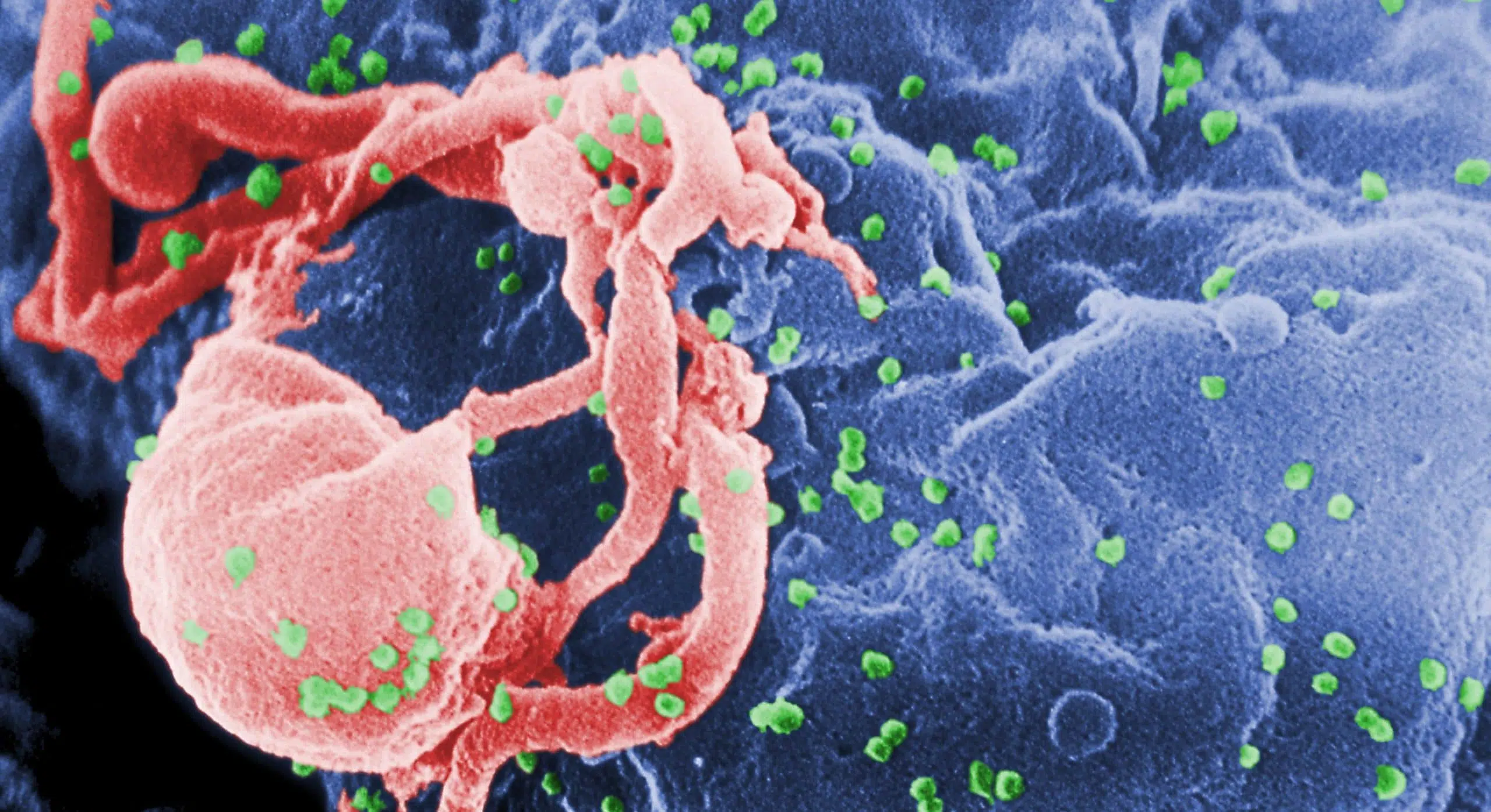Despite the scientific evidence to the contrary, pro-homosexual group tend to insist that living the active homosexual “lifestyle” is just as healthy as heterosexuality. Some of the claims made by pro-homosexual groups are ridiculous on their face. For example, in its comically misnamed Intelligence Report, the Southern Poverty Law Center claimed [1]:
MYTH #4: LGBT people don’t live nearly as long as heterosexuals.
THE ARGUMENT: Anti-gay organizations want to promote heterosexuality as the healthier “choice.” Furthermore, the purportedly shorter life spans and poorer physical and mental health of gays and lesbians are often offered as reasons why they shouldn’t be allowed to adopt or foster children.
Anyone who has done research in this area of public health knows that active homosexual behavior is not a healthy lifestyle [2], bringing tremendous deleterious physical and mental consequences [3].
Unfortunately, the research showing these effects is condemned or ignored by homophiles. To complement the research already done on this topic, HLI’s Dr. Brian Clowes took a different approach. He examined 6,089 obituaries of homosexual men from four homosexual magazines: The Bay Area Reporter, the Washington Blade, the New York Blade and This Week, published between 1980 to 2014 inclusive.

There were only 138 obituaries for lesbians in these magazines, too small a sample from which to draw conclusions. Thus, the review Dr. Clowes completed is focused solely on gay males. To be included as a subject of this survey, a man had to be positively identified as a homosexual, which meant that only a fraction of available obituaries was used in this survey. The results included some fascinating observations.1
Primary Conclusion: Shorter Lifespans
As time passes and medical innovations proliferate, life spans are lengthening, including those of male homosexuals. However, their average life spans still lag significantly behind those of straight males. According to what Dr. Clowes observed in his review of obituaries, the average age of death for male homosexuals hovered around a dismal 40 years until about 1995, and then began to rapidly improve. As of 2014, it was about 60, an increase of 50% in about 20 years.
In 2014, the average loss of life for a male homosexual was about nine years. The average life span of male homosexuals may eventually compare to that of the general male population. “Gay” activists will inevitably point to this as proof that the active homosexual lifestyle is safe and healthy. But this is a fallacy. If you have HIV, and your very life depends on the constant consumption of powerful antiretrovirals, you are certainly not “healthy.”
The causes of death for male homosexual in the obituaries differed greatly from those of the general population. The rates of death of homosexual men from cancer, heart disease, stroke and diabetes are all significantly lower than those of the general population, because these homosexuals simply did not live long enough to die from them at greater rates. About three-fourths of the sample population died of HIV/AIDS at an average age of only 40.26 year during the survey period.

Scanning electron micrograph of HIV-1
Impact on Black and Transgender Populations
There are a number of very interesting conclusions regarding specific populations that can be drawn from this obituary survey.
For example, black male homosexuals lost fewer years of life than white male homosexuals over the time period of this survey (1980-2014). The 159 black male homosexuals in this summary died at an average age of 41.8 years, meaning an average loss of life of 19.3 years as compared to 23.3 years for white homosexuals.
It is also interesting to examine the health impacts of transgenderism. Not surprisingly, “transgendered” people in this survey die young, even when compared to the larger homosexual populations. The human body simply cannot tolerate the brutal abuse inflicted upon it by this kind of mutilation and its lifetime requirement of ingesting huge doses of extremely powerful hormones, or the constant messaging that one’s natural body is a prison of sorts and must be artificially altered. The 61 identified originally male “transgendered” people in this sample died at an average age of 40.7. Two-thirds of these death were violent in nature (murder, suicide and fatal accident).
Death, Religion and HIV/AIDS Research
While reading through these thousands of obituaries, Dr. Clowes noticed several interesting trends.
For example, there were certain prevalent attitudes toward death and religion.
- To begin with, in contrast to the obituaries in mainstream newspapers, the ones for homosexuals studiously avoid using the words “died,” “dead” and “death,” perhaps as a kind of avoidance of acknowledging the very fact of death itself.
- Strangely, many of these obituaries strongly assert that the deceased is definitely in Heaven and enjoying various (always physical) delights.
- The obituaries often identify homosexuals as being “spiritual” but never as being “religious.” Some even claim that the deceased was a “fervent Catholic,” despite the deceased having countless sexual partners and helping to “defend” abortion clinics.

Not one of the thousands of obituaries acknowledged that promiscuous sex was the primary driver of the HIV/AIDS epidemic. nor is there acknowledgement of the fact that the government has spent hundreds of billions of dollars on research on AIDS [5] and care for AIDS victims, and that every person who dies of AIDS has more money spent on him or her by the government than twenty cancer or heart disease sufferers. Instead, there was obvious misinformation such as the following:
- One obituary read, in part, “Governmental inaction, corporate greed, and the queer-hatred of the US citizenry have murdered one more of our warriors.”
- Another claimed that the deceased “was the first protestor to rush to the Dallas Convention Center’s huge glass doors, bang on the glass, and shout, ‘Murderers! Murderers!’ at Goerge Bush and the Religious Roundtable.”
- Yet another complained, “Another hero is dead, killed as much by fundamentalist arrogance and governmental indifference as by HIV.”
- Some were “murdered by homophobia and the government;” “killed by AIDS, homophobia, and a government indifferent to his pains and needs.”
- Another claimed, “Greed and government apathy continue to spread the AIDS epidemic.”
The hatred many homosexuals have for the Catholic Church is strong and is often vividly portrayed in these obituaries:
- Even though the Church lovingly cared for one man for months as he was dying, the writer of his obituary couldn’t resist penning a little improbable anti-Church propaganda: “For the last six months of his life, Wayne lived at the Catholic-run Gift of Love Hospice in San Francisco. Although Wayne lived as an atheist all his life, the nuns coaxed him to convert to Catholicism, offering large supplies of candy and cigarettes in return.”
- Another “was also well-known for his furies, for his rages at the Pope and the devastating impact of homophobia.”
- Yet another said that “his greatest concern in life was the exposing and dismantling of religion, which he felt was the greatest threat to human liberty and freedom.”
- Finally, one obituary described the deceased as “a valiant Knight of truth” who “fought superstition and the tyranny of Christist [sic] dogma; he is now a Free-man of the City of the Stars.”

The authors used a wide range of terms to describe their relationships and their companions in their obituaries: “significant other,” “lover,” “lifetime companion,” “long-term roommate,” “special friend,” “domestic partner,” “love/mate,” “companion,” “partner in life,” “very close friend,” “long-term friend,” “special best friend,” “soulmate,” and even demeaning terms such as “insignificant other” and “sidemeat.”
There was very frequent mention of association with Alcoholics Anonymous and a “recovery community,” and ample evidence of other addictions. Most noticeably, there are many quotes boasting that “he lived life his way” or “he lived life on his own terms.” These include obituaries for people who “loved to have things his way;” “always refused to abide by the rules;” and “led a wild life, and he lived it exactly as he chose.” One taught others to “do what you want in your lives – no excuses,” and another came to San Francisco “in search of a new and guilt-free life.” The most common expression was: “I am not here for a long time, just a good time!”
Physical and Emotional Health Issues in the LGBT Community
The review of obituaries only scratched the surface regarding the poor physical and mental health that LGBT individuals have.
It’s no secret that sexually active homosexuals have higher rates of HIV/AIDS [7] and that men who have sex with men have higher rates of STDs [8]. This fact alone shows the vulnerability sexually active homosexuals have in regard to overall health and well-being. A study focusing on married gay men and lesbians in Denmark found that though treatment of HIV/AIDS has decreased mortality rates [9], mortality rates among homosexuals remained higher than the rest of the population.

We have also seen how homosexuals have more partners than heterosexuals, which creates a higher risk for STDs. For example, this study shows that homosexuals aged 35-39 had a median of 67 partners [10], whereas heterosexuals of the same age range had a median of 10.
LGBT individuals have higher rates of mental illnesses [11] as compared to straight individuals. LGB individuals are two times more likely to develop a mental health issue [12], while transgenders are four times more likely. The suicide risk is also twice as high for LGB individuals, and the risk of substance abuse is almost twice as high. LGBT individuals also intentionally consume pornography at higher rates than others.
In addition, there is a strong overlap between being “gender-diverse” and having autism [14]. While clearly not all “gender-diverse” people are autistic, and not all autistic people have gender dysphoria, the overlap is significant. The question we must ask, then, is whether having gender dysphoria is a trait of autism.
This combination of factors suggest that the LGBT lifestyle poses greater risks to health.
What Causes Mental Health Issues in the LGBT Community?
We are expected to accept that the greater risk to mental and emotional health is simply because of “hatred and discrimination” against LGBT people. But we live in a world that is increasingly pro-LGBT [15], to the point of “canceling” anyone who dares hold a different opinion, even going so far as to compel speech. Despite this, the risk of worse mental and emotional health in LGBT people remains. Thus, we must ask – is “discrimination” truly the root of the issue? Did these individuals experience mental illnesses before or independent of identifying as LGBT? Or is there something about the lifestyle or the “community” that contributes to mental health issues? The research on this topic is sorely lacking.
Perhaps the answer to these questions is much simpler. Perhaps, in the case of transgenderism, being chronically unhappy with one’s body and being told that surgery is the only way to feel like oneself contributes to body image issues and depression. Perhaps young people who are insecure and trying to discover who they are, who also feel a sense of loneliness, turn to the LGBT “community” to try to feel accepted or part of something. Perhaps these young people end up convinced they are LGBT.
This is not to say that all homosexual individuals suffer from mental illnesses or are simply searching for belonging. Certainly, there are those who genuinely experience attraction to the same sex, and loneliness or belonging would not change that fact. But it is essential to be able to ask questions and get to the heart of the issue, rather than to silence anyone who says something different.

Common Objections to the Obituary Study
Many pro-gay sources object to the findings of such studies [17]. They often claim the following:
- The study is fundamentally flawed as it does not include “closeted” gays. This objection makes little sense, as it is not merely same-sex attraction that brings these issues to light, but rather being sexually active, promiscuous or living a homosexual lifestyle. Thus, the inclusion of only “out-of-the-closet” gays is sufficient.
- A review of obituaries does not provide enough data to be applied to the general homosexual population. Those who make this claim bring little to no evidence of why a thorough review of thousands of obituaries is insufficient in scope to apply to a larger population, or even simply to make observations and come to primary conclusions. Some even claim that the homosexuals included in such studies were better off than homosexuals in general. If this were true, then the lifespans discovered through obituaries are actually longer than homosexuals in general. This would skew the data and show that homosexuals have even shorter lifespans.
- The study does not include enough lesbians. It is true, the study Dr. Clowes conducted did not include enough lesbians to produce a reliable sample size. However, the study focuses on homosexual men, a cohort that provided a large enough sample size from which to draw conclusions. A study that focuses on gay men cannot be criticized for not including lesbians and gay men. The conclusions made apply to homosexual men.
Final Thoughts: Homosexual Behavior Harms Mental and Physical Health
This thorough review of thousands of obituaries brought to light many interesting observations. As we have seen, the life expectancy of sexually active gay and bisexual men seems to be lower than others. LGBT individuals also suffer worse mental and physical health than their straight counterparts.

There are lessons we can learn from these trends.
What is most troubling is that some homosexuals who learned that they were infected with HIV decided to continue practicing promiscuous sex, regardless of how many other lives were endangered. One obituary revealed:
By the time he was 22, Warren knew he was infected [with HIV]. Nonetheless, he lived passionately and exuberantly, putting as much intense and ecstatic sex as he could into every day, sharing his joy widely….[He left his occupation of] chemistry for slavery because he had learned to follow his bliss.
Slavery indeed. It is depressing to read the stories of so many wasted lives. It is even more disheartening to see that these obituaries carry no sign that others learned from their obvious lessons. Homosexual activists frequently boast about their genius and talent, then deliberately proceed to deprive the world of these qualities.
Egocentrism can be a terrible – and even fatal – character flaw.
This article was originally published in June 2020 by Dr. Brian Clowes and was most recently updated in January 2024 by Marisa Cantu.
+ Endnote
[1] For collected details on each of the obituaries and an analysis, email Brian Clowes at bclowes@hli.org and ask for F-25-B.XLS, “Life Spans of Male and Female Homosexuals in the United States.”